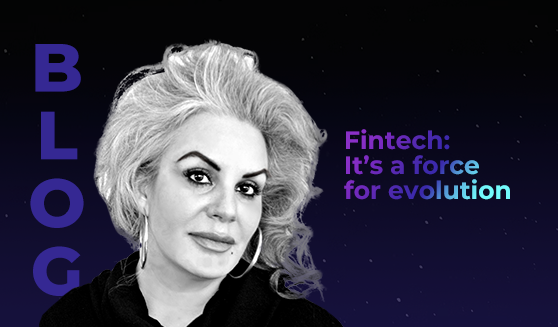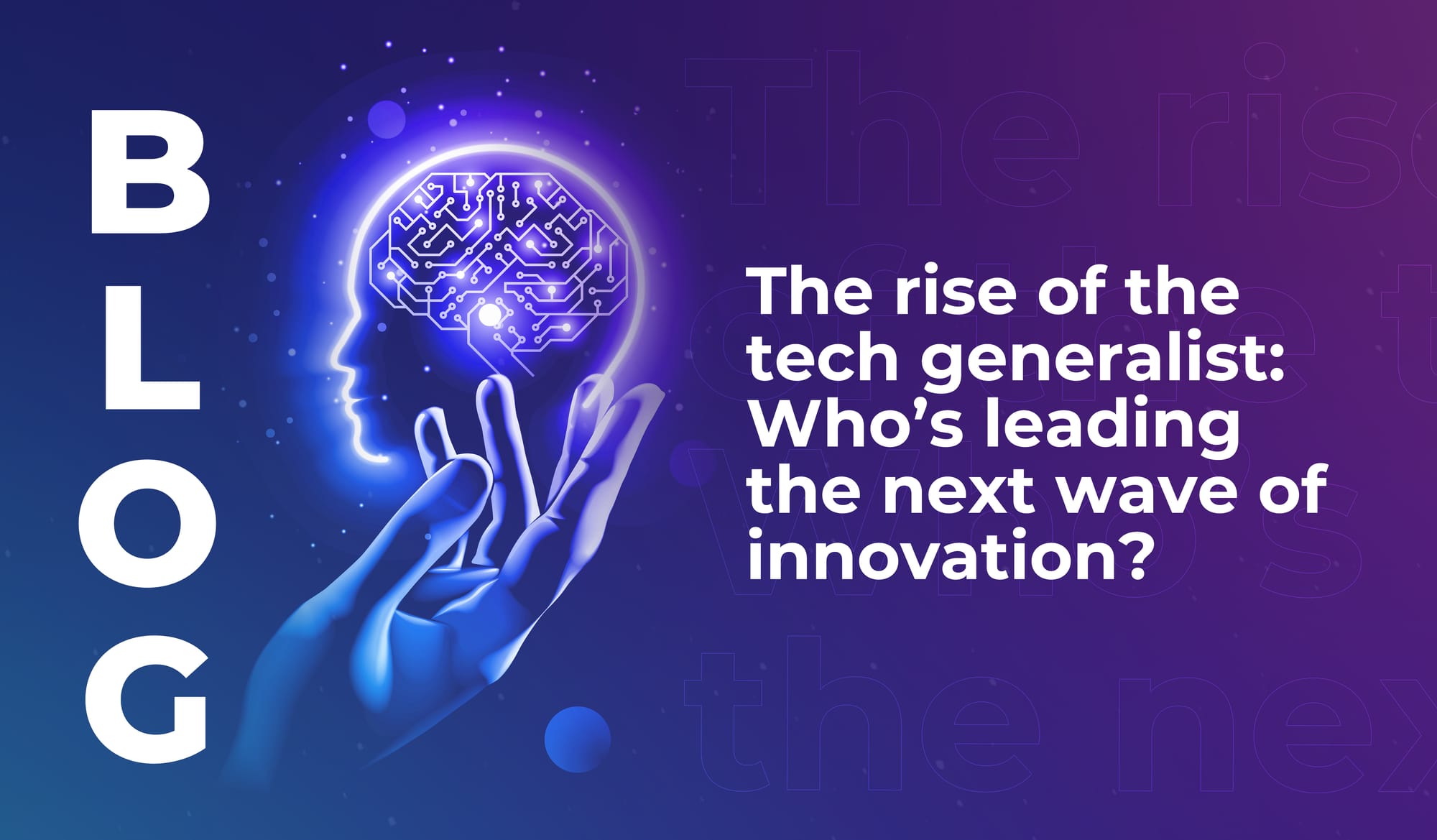
Tech careers with impact: The power of investing
If you’ve ever thought about becoming a tech investor, read this – learn why investors are the quiet force shaping the future of the industry.


“…under one roof (an unfathomably big roof) we have smart energy, smart cities, and health tech bumping into fintech tech. LEAP 2023 afforded me the chance to talk with others from around the world, in different industries, about that intersectionality of smart data use cases in an open framework; a rare opportunity.”
#LEAP23 keynote speaker Ghela Boskovich (Regional Director/Head of Europe at Financial Data and Technology Association) is a self-proclaimed fintech fanatic with a focus on driving innovation – and speeding up the pace of change. She founded FemTechGlobal™, a community dedicated to driving inclusion and positive transformation within financial services, and a background in regulatory economics means she’s well placed to understand what it is that needs to change.
We asked Boskovich about her approach to adopting tech in a way that shifts the focus in financial services away from products, and towards customers.
“I’m most excited by the recognition that consumers own their data, not the corporates. This goes beyond fintech, but financial services is where this ownership question is being addressed first. The rise of a formal, legal recognition of a Consumer Data Right is fundamental to building a real data economy – an open data economy.
“We’re seeing that happen with open banking and open finance. The first experiment in opening up an industry started with banking, and fintech accelerated that experiment. It also legitimised fintech as a necessary stakeholder in the value chain, and a permanent catalyst for innovation in the industry. Fintech continues to press for the evolution of business models, and optimisation of data insights. That’s the exciting part of fintech – it’s the force behind the laws of evolution in financial services.”
“Products and services are still siloed as individual business lines with individual profit & loss frameworks; P&L accounting means products are still designed in isolation, and ultimately means that internal bank political lines are drawn according to these individual P&Ls. P&Ls are not, in any way, customer centric; they’re product centric. Siloed product lines treat customers as a competitively scarce resource.
“But if we accounted for customers as markets, rather than as individual product/service consumers, and actually reformatted our P&Ls to be market-based rather than product-based, the consumer would naturally shift back to be the centre of all product/service/bundling design. Customers would belong to a holistic segment rather than a product line; the customer – not the product – would define the P&L.
“This approach looks at Customer Lifetime Value, rather than quarterly incremental profit margins per product consumption. It necessitates flexible, dynamic product design – it means more fintech/bank partnerships and marketplaces. It means optimised data strategies and digital transformation strategies. Customer data cannot be trapped in disparate systems: whatever payment transaction the customer makes only has context when related to their credit, savings, and investment transactions. Customer centricity requires context.
“Changing the way we define P&L lines directly impacts how we change our approach to evolving culture and accelerating digital transformation. Making accounting accountable for customer centricity lays that foundation, it changes the culture paradigm completely.”
“Take a look at the Grameen Foundation, and what they’re doing to financially empower impoverished women. As they point out, when poor women control their own money, it no longer controls them.
“Fintech can make cash digital, and encourage safer collection, spending, savings and borrowing; these transactions also provide more accurate insight into risk (probability of default, debt repayment, savings quotient), and helps underserved communities build risk profiles/portfolios. In financial terms, it takes no-file or thin-file individuals and gives them a more robust, acceptable profile that onboards them into more traditional financial services. It lowers that barrier to entry, especially in creating better, more fair access to credit.
“Equity is a different matter: the equity gap is based on significant differences in return on investment, cost of debt, and intergenerational transfers of wealth. Again, fintech plays a role in correcting some of that asymmetry towards equality as a first step on the path towards equity.”
“Let’s start with codifying legal rights, including right to bodily autonomy, right to vote, right to privacy, right to own one’s own data, right to organise, maternity and paternity leave, right to health care. Then lets codify information transparency: wage disclosure, pay gap, hiring practices, credit rating composition.
“Mandating certain policy is a good way to ensure all companies play by the same rules. It doesn’t fix things, but it incentivises certain hiring, wage, and retaining behaviours. Eradicating toxic corporate culture is another thing: enforcing no discrimination policies, no harassment rules, equal pay for positions (again, wage transparency matters), and encouraging flexible work from home arrangements.
“Also, empathy. Build companies with empathy at their core: empathy for both the employees and the customers. To be fair, empathy is at the core of every one of those rights and policies listed above. A compassionate human centric ethos is key to closing the gap and fostering diversity.”
“Having so many industries convened in one spot made it so much easier to have conversations about the intersectionality of different data sets, and what potential use cases arise from blending those insights.
“I presented on the journey to open data economies and where we are on that path; some of the use cases being actively explored focus on blending utilities, communications, and financial data.
“And under one roof (an unfathomably big roof) we have smart energy, smart cities, and health tech bumping into fintech tech. LEAP 2023 afforded me the chance to talk with others from around the world, in different industries, about that intersectionality of smart data use cases in an open framework; a rare opportunity.”
Thanks to Ghela Boskovich at Financial Data and Technology Association. Discover LEAP to learn more.

If you’ve ever thought about becoming a tech investor, read this – learn why investors are the quiet force shaping the future of the industry.

Tech generalists will enable emerging technologies to integrate across industries and societies in meaningful ways. We still need specialists – but we also need big-picture people.

Discover three tech sectors facing a talent shortage this year. Could you find your ideal role in a high-demand sector like cybersecurity, cloud computing, or artificial intelligence?

If you’ve ever thought about becoming a tech investor, read this – learn why investors are the quiet force shaping the future of the industry.

Tech generalists will enable emerging technologies to integrate across industries and societies in meaningful ways. We still need specialists – but we also need big-picture people.

Discover three tech sectors facing a talent shortage this year. Could you find your ideal role in a high-demand sector like cybersecurity, cloud computing, or artificial intelligence?